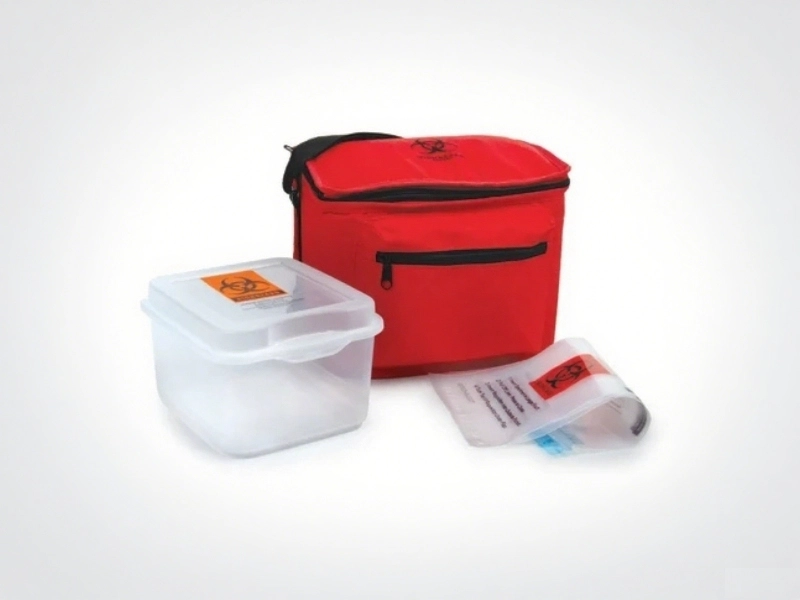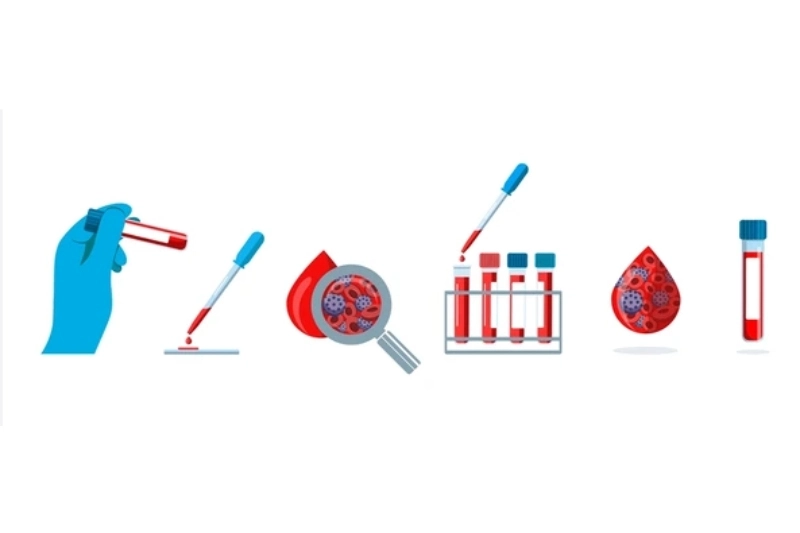Advancements in Specimen Transport: AI 650 Bags Lead the Way in Safe and Compliant Shipping
Release time: 2025-07-29
In the rapidly evolving landscape of healthcare logistics, the safe and compliant transport of biological specimens is paramount. The AI 650 95kPa Biohazard Specimen Transportation Bag, a product of Advance International, is at the forefront of this critical sector, offering innovative solutions that meet stringent international standards. As global health initiatives and diagnostic testing demands grow, blood sample transport bags like the AI 650 are becoming indispensable tools for ensuring sample integrity and safety.
Importance of Safe Specimen Transport
The transport of biological samples, such as blood vials, swabs, and medical devices, is a critical component of modern healthcare and research. These samples must be transported under strict conditions to prevent contamination, leakage, or degradation, which could compromise diagnostic accuracy or research outcomes. The AI 650 specimen bag is specifically designed to address these challenges, ensuring that Category B biological substances (UN3373)—diagnostic specimens with a minimal risk of infection—are transported safely and in compliance with international regulations.
The importance of reliable transport solutions has been underscored by global health crises, such as the COVID-19 pandemic, which saw millions of samples shipped worldwide for testing and research. The AI 650 bag, with its robust design and compliance with standards like IATA Packing Instruction 650 and U.S. DOT guidelines (49 CFR 173.6), plays a vital role in meeting these demands.
Features of the AI 650 Specimen Bag
The AI 650 95kPa Biohazard Specimen Transportation Bag is engineered with advanced features to ensure the safe transport of biological samples. Key characteristics include:
- Pressure and Temperature Resistance: The bag can withstand a 95 kPa internal pressure differential, a requirement for air transport to prevent leakage under varying atmospheric conditions. It also maintains integrity across a temperature range of -40°C to +55°C (-40°F to +131°F), making it suitable for diverse environmental conditions.
- Leak-Proof and Tamper-Evident Design: The bag features a patented adhesive closure and continuous seal, ensuring that it remains leak-proof and tamper-evident. This is critical for protecting both the sample and the handlers.
- Absorbent Pouch: Each bag includes an absorbent pocket sleeve capable of holding up to seven cryogenic vials and absorbing at least 200ml of distilled water, mitigating the risk of spills in case of a leak.
- Comprehensive Packaging Kits: The AI 650 bag is part of a 4GV Packaging Kit, which includes absorbent pouches, fiberboard inserts, pads, ties, pressure-sensitive tape, and a corrugated outer box. These kits are UN-certified and suitable for shipping hazardous liquids or solids in Packing Groups I, II, and III across air, ground, and sea transport.
These features make the AI 650 bag an ideal choice for transporting blood samples, clinical diagnostic samples, and other biohazardous materials, ensuring compliance with stringent regulatory requirements.
Regulatory Compliance
The AI 650 specimen bag is designed to meet the requirements of the International Air Transport Association (IATA) Packing Instruction 650 and the U.S. Department of Transportation (DOT) guidelines under CFR 49, Parts 100 to 195. These regulations mandate a triple packaging system for Category B biological substances, consisting of:
- Primary Receptacle: The container holding the biological sample, such as a blood vial.
- Secondary Packaging: The 95kPa-rated AI 650 bag, which provides a leak-proof barrier and includes absorbent material to contain any potential leaks.
- Outer Packaging: A rigid box with at least one surface measuring 100mm x 100mm, providing additional protection during transit.
Industry Trends and Market Growth
The global medical transport box market is experiencing significant growth, projected to reach $1.27 billion by 2029 with a compound annual growth rate (CAGR) of 9.3%. This expansion is driven by the increasing need for reliable transport solutions for clinical samples, fueled by global health initiatives and the rise in diagnostic testing. The COVID-19 pandemic highlighted the critical role of specimen transport, as laboratories worldwide required rapid and secure shipping of samples for testing and research.
Innovations in logistics are enhancing the efficiency and safety of specimen transport. Artificial intelligence (AI) is being integrated into logistics operations to provide real-time data analysis, dynamic routing, and shipment tracking. For example, systems like Descartes’ GroundCloud offer end-to-end visibility and ensure compliance with safety regulations, reducing the risk of errors and delays. These advancements complement the capabilities of the AI 650 bag, creating a more robust and efficient transport ecosystem.
Additionally, the industry is moving towards more sustainable practices. Biodegradable specimen bags, such as those offered by some manufacturers, are gaining traction as healthcare providers seek to reduce their environmental footprint. Customizable solutions, like the DuraPorter® Specimen Transport Box, allow for tailored transport options that meet specific needs, further enhancing the flexibility of specimen transport systems.
Absorbent materials, such as cellulose wadding or super-absorbent packets, are placed between the primary and secondary packaging to absorb the entire contents of the primary receptacle in case of a leak. Cushioning materials are also used to prevent movement and damage during transport. This triple packaging system ensures that the AI 650 bag meets all necessary safety standards for transporting biohazardous materials.
Challenges in Specimen Transport
Despite these advancements, challenges remain in the field of specimen transport. Mishandling and sample contamination are ongoing concerns, as improper handling can compromise the integrity of samples and lead to inaccurate diagnostic results. Additionally, there is growing awareness of the environmental impact of medical supplies, with concerns about microplastics in products like IV infusion bags. Addressing these challenges requires continuous innovation and adherence to best practices in packaging and transportation.
The AI 650 specimen bag addresses these concerns through its robust design and compliance with international standards. Its leak-proof construction and absorbent materials minimize the risk of contamination, while its durability ensures that samples remain secure during transit.


